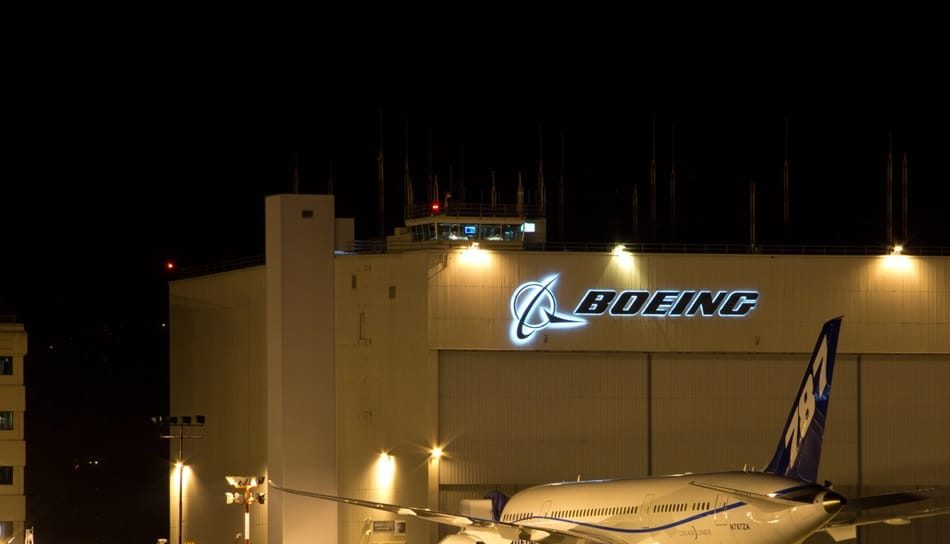Boeing is on the brink of a significant labor dispute as its contract with 32,000 workers represented by the International Association of Machinists (IAM) is set to expire.
Without a new agreement, the workers who build Boeing’s planes in Washington state are prepared to launch the company’s first strike in 16 years, adding to the aerospace giant’s growing list of challenges.
The negotiations between Boeing and IAM have been fraught. Both acknowledged substantial gaps on key issues like wages, healthcare, retirement benefits, and time off.
Jon Holden, president of IAM District 751, said:
We’re far apart is on all the main issues – wages, health care, retirement, time off.
“We continue to work through that, but it’s been a tough slog to get through.”
Boeing’s Recent Troubles Compound Tensions
A Company Under Pressure
The potential strike is just the latest in a series of high-profile problems for Boeing.
These include fatal crashes linked to design flaws in its best-selling 737 Max jet, accusations of prioritizing profits over safety, tanking aircraft sales, and massive financial losses.
Boeing has also faced legal challenges, including a guilty plea to criminal charges of deceiving regulators.
The company’s financial woes have been severe. There has been $33.3 billion in core operating losses over the last five years. This has forced Boeing to take on significant debt.
This financial strain has been exacerbated by delayed aircraft deliveries. There are also ongoing questions about the safety and quality of its planes.
Despite these challenges, both Boeing and the IAM have expressed a desire to reach a deal that avoids a strike.
However, the rank-and-file union members are reportedly angry over previous contract concessions. They are also unhappy at the company’s recent struggles, making a last-minute agreement difficult.
Need Career Advice? Get employment skills advice at all levels of your career
The Stakes for Boeing and Its Workers
The union is pushing to recapture some of the concessions made in two previous agreements since 2008, which were extensions of existing contracts rather than new deals.
These concessions included increased payments for health insurance and the loss of traditional pension plans. Both of these were agreed upon under the threat of Boeing moving production to non-union facilities.
Boeing has since built a non-union 787 Dreamliner plant in South Carolina. It also dropped plans for additional non-union facilities as part of those earlier deals.
However, the union remains concerned about job security and the potential for future concessions.
Boeing’s new CEO, Kelly Ortberg, who took over on August 8, has expressed a desire to “reset our relationship” with the union.
However, Holden said he has not seen any changes in Boeing’s stance at the bargaining table, despite Ortberg’s intentions.
Ortberg’s predecessor, Dave Calhoun, signaled to investors in July Boeing was willing to do what it takes to avoid a strike, acknowledging that “wage asks will be big.”
Boeing has pointed out wages for IAM members have increased by 60 percent over the last 10 years due to general wage increases, cost-of-living adjustments, and incentive pay.
However, the union is focused on reclaiming the concessions made in the past and securing better time off and job guarantees.
Broader Implications of a Strike
Economic and Industry Impact
A strike by Boeing’s 32,000 union members would have wide-ranging consequences, not only for the company but also for the broader U.S. economy.
Boeing estimates its economic impact at $79 billion, supporting 1.6 million direct and indirect jobs across more than 9,900 suppliers in all 50 states.
Moreover, Boeing is one of only two major suppliers of commercial jets to the airline industry, alongside Airbus.
The airline industry is already grappling with Boeing’s delayed deliveries, and a strike would further strain the company’s ability to ramp up production.
Holden emphasized the union’s concerns about the company’s management decisions, which he believes have contributed to Boeing’s current difficulties. “They haven’t said they can’t afford our proposals,”
Holden said:
“They are reasonable. We’re in a tough position because of decisions they made to keep increasing the dividend and share repurchases, cutting R&D. They’ve been paralyzed to launch a new airplane. It’s because of those decisions and the crashes that we’re in this position.”
The Union’s Broader Goals
Beyond the immediate contract negotiations, the IAM is also seeking a long-term change in Boeing’s governance structure.
The union is advocating for a representative on Boeing’s board of directors to ensure that workers’ voices are heard in the decision-making process.
Holden said:
“The board certainly deserves to be criticized.
“We don’t want to run the company. But we want to make sure our voices are being heard about the decisions being made. We love the Boeing Company. It’s the people on the board who don’t. They sacrificed its integrity.”
As the September 12 deadline approaches, both sides are under pressure to reach an agreement that satisfies the union’s demands while addressing the company’s financial realities.
The outcome of these negotiations will be crucial in determining whether Boeing can avoid a strike and begin to stabilize after years of turmoil.




